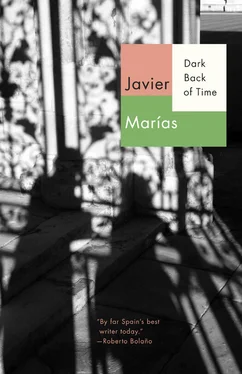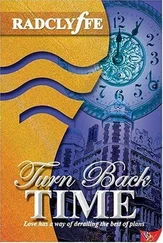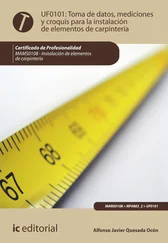As regards Oloff de Wet, I’ve found some references in the bibliography on the Civil War. Jesús Salas Larrazábal mentions him in two of his books, La guerra de España desde el aire ( The Spanish Civil War from the Air ), Barcelona: Ariel, 1972, and Intervención extranjera en la guerra de España ( Foreign Intervention in the Spanish Civil War ), Madrid: Editora Nacional, 1974. In the first of these, De Wet is mentioned in relation to the creation, by the new Undersecretary of the Air, of at least fifteen pursuit and bombardment units using imported equipment that went into operation in September, 1936. According to Salas, De Wet was piloting a Nieuport 52 at that time. There are also isolated references to De Wet in Alcofar Nassaes, La aviación legionaria en la guerra española ( Legionnaire Aviation in the Spanish Civil War ), Barcelona: Euros, 1975. However, I’ve found no mention of him in Bill Alexander, British Volunteers for Liberty , which claims to provide a very extensive list of the British volunteers, almost all of them posted to the British Battalion in which the author served. Nor does he appear in the documents and memoirs of members of the brigades and British fellow travellers.
In general, these references are due to the publication by Oloff de Wet of Cardboard Crucifix , London: Blackwood, 1938, which I’ve not succeeded in finding and don’t believe has been translated or published in Spanish. An excellent angle for further recherches: let’s see what you can do this time: give us a further display of your skills. From what I can deduce, it’s an autobiographical story of his experience as a fighter pilot in Spain, and a well-placed eyewitness account of the birth of the Republican Air Force. A quite extensive excerpt (fourteen pages) from Cardboard Crucifix is included in The Civil War in Spain by Robert Payne, London: Secker & Warburg, 1962, who is not to be confused with Stanley G. Payne, the historian of Spanish fascism. The fragment isn’t much: a journalistic impression of Madrid in the revolutionary autumn of ’36, some impressions of flying in the Nieuport and a few quick sketches of leading figures in the International Brigades.
— Zarzalejo, January 1992
January 1992, only a year before his death. No one could have imagined it then, he himself least of all, no one ever knows the order of these things.
I believe I remember that the next time we saw each other I had the nerve and the ingratitude to belittle his findings and throw back in his face the skimpy, insipid pickings he had served up to me, much of it useless because already known to me (but that was always the style with Benet, those of us who were his friends tended to take our mutual competence for granted and not acknowledge any merit in each other except on very rare occasions, which made it all the more exceptional and unforgettable: my family is of the same school, a prickly, jesting school — a little grace and good humor are required — which I’ve noticed most other writers won’t tolerate, forced as they all too often are into reciprocal cloying adulation and even reverence, constantly addressing each other as Maestro This and Maestro That, as some of them do both in public and in print, to help each other over their complexes, inferiority complexes, that is). In fact, with an eye to my own impending display of prowess, I took care not to applaud him openly, for in his report he had seized the opportunity to issue a challenge, which he then repeated in person and in the presence of witnesses, as I had issued mine: “Look here you great bloodhound of the Baskervilles, you Arsène Lupin of literature, look here, young Marías: is it not your boast that no book, however unattainable, can elude you? I want you back here with that Oloff de Wet, which sounds like the name of a perfume; let’s see if you can deliver us a copy of this Cardboard Crucifix that you tell us you’re so very much in the know about.” Thus had Don Juan turned the tables and the investigative challenge on me. “I’ve done my part. It’s your turn now,” he said, “and I hope you won’t have the shamelessness to appear at the next dinner without that book under your arm.” We were always like that, like kids daring each other to do harmless, trivial things (or some things that weren’t so harmless), for the fun and excitement of it, and above all for the continuity and deferral, there was always something pending and we’d have to see each other again. Of course I was far from being the only one, he used the same tactic on everyone, Azúa, Molina Foix, Hortelano, Daniella and her famous episteme, Mercedes, the engineers, Peche, any friend who had earned the affection embodied in his irony.
One of those idiotic and dispassionate challenges gave rise to a brief, memorable text he wrote me in a letter dating from my Oxford years, and this book will have been worth the trouble if only to make that text public (though I won’t cite all of it verbatim, to avoid ruffling any feathers). He had dared me to guess his new bête noire of the moment (November, 1984), and in my answer I got it right on the first try (“Has the same initials as Jaime Salinas,” I had said); I also fired off a volley of minor hieroglyphics — a further series of otherwise unidentified initials — and announced that I had an excellent little gift for him that he would find very useful, and that I would present him with on my next trip to Madrid: “an ingenious instrument,” I called it, as can be deduced from his answer. Benet had grown a moustache not long before, and though in time we grew so accustomed to it that it isn’t easy now to remember what he looked like clean-shaven, at that point his friends were still pondering the daring novelty on his upper lip and hesitating between approval, rejection, condemnation and a forced visit to the barbershop. Meanwhile, what I had bought for him, was a tiny, ridiculous comb glimpsed in a specialty shop in London, designed especially for the grooming and hygiene of such appurtenances, as they used to say in more indirect times.
“It was indeed J S,” he acknowledged in the second paragraph of his letter, “a perfect imbecile who mixes piety with arrogance, like Xirinachs. I haven’t deciphered a single one of your initials, but to stave off and give the lie to any avowed ‘blunting of my intellect,’ I’ve decided to predict that the ‘ingenious instrument’ you’re going to give me is neither more nor less than a small comb. Naturally, you’re in the perfect position to deny this and even to acquire a new little gift in order to prove that it wasn’t a small comb, but I shall remain persuaded all my life that originally it was a small comb (I give no further details because this alone should suffice to make you blush), and if you conduct yourself ignobly in this grave matter and pull a switch on me, I, for my part, will forever hide the reasons that have led me to unmask the comb. For if you put your mind to it a little, you’ll quickly conclude that it couldn’t have been anything but a small comb.”
Here I was forced to pay tribute to his divinatory gifts or perspicacity, though it irritated me enormously that he had spoiled the mystery of my small, specialized comb, which in due time I gave him, without making a switch, but in a rather peeved, grudging and even spiteful spirit. I often saw him use it in the years that followed, he would take it out during some gathering and, in my presence, delicately preen his moustache for a while with a distracted air, blatantly alluding to his brilliant deductive triumph. (Depending on my mood I either pretended not to notice or gratified him by taking the hint and saying: “Very well, Don Juan, that’s fine, yes, I remember, you hit the bull’s-eye, you can stop now, there’s not a hair out of place.”) Very typical of him, that recurrent retrospective delectation.
Читать дальше












